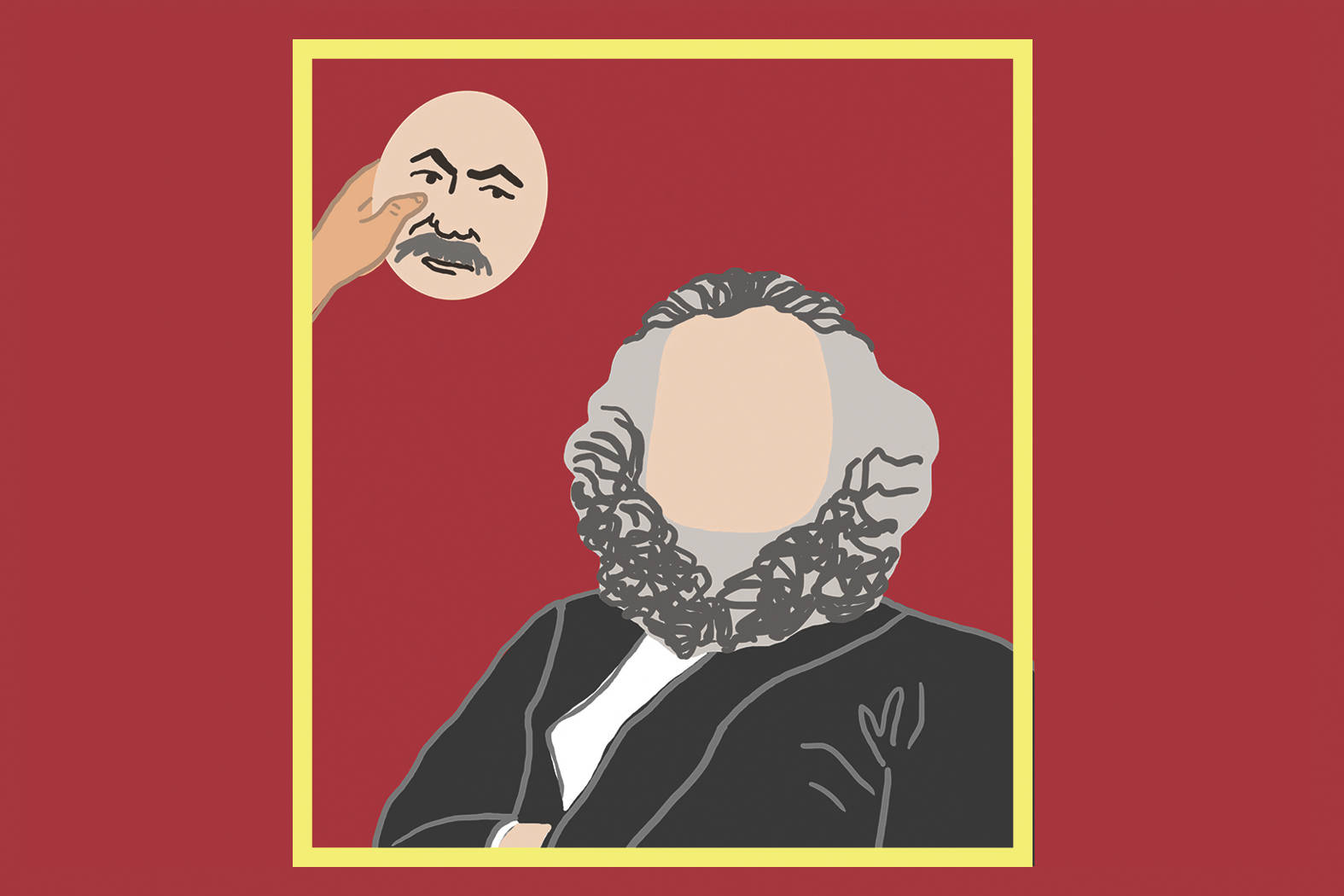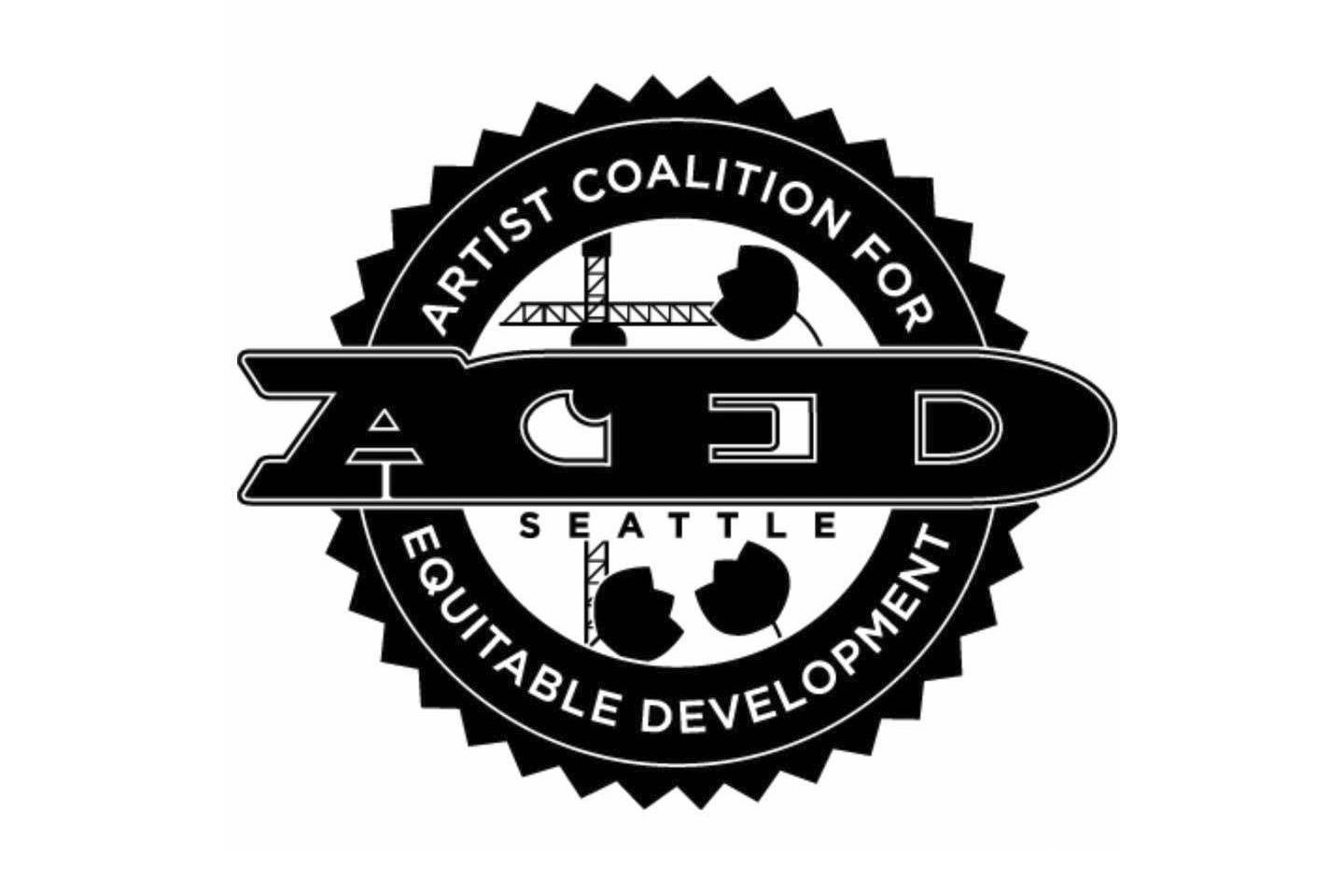In the days following September 11, Asad Haider’s identity was of great concern. A first-generation Pakistani-American, he recalls being harassed and detained at the airport due to his ethnicity. Today, his identity is also of considerable interest to opponents of his political writing as the founding editor of Marxist “militant research collective” Viewpoint Magazine. Except now, many of his critics online accuse him of being white—out of touch with the world of identity politics.
“It completely erases my own experiences of racism and it distorts the views I’ve formed to understand those experiences,” he says during a lengthy conversation with Seattle Weekly. Haider has emerged alongside fellow Viewpoint editor Salar Mohandesi; R.L. Stephens II of Orchestrated Pulse; Jacobin editor Bhaskar Sunkara; University of Pennsylvania Prof. Adolph Reed Jr.; and Princeton Prof. Keeanga-Yamahtta Taylor as one of many Marxists of color vocally critiquing the conventions and effectiveness of contemporary liberal identity politics. He will be speaking in Seattle on a number of topics at the month-long radical leftist event series Red May. We chatted about why Haider believes identity politics is a “dead end,” in advance of his Seattle appearance. Since we’re talking about identity politics, for clarity, I am European-American.
Could you begin by explaining how you define “identity politics?” It’s such a nebulous term to begin with—but I think for a lot of people, it’s shorthand for anti-racism or the ongoing fight for basic civil rights.
I think you have to draw a clear distinction between movements in the past that targeted a structure defined by racial oppression—the Civil Rights movement and the Black Power movement are the most obvious examples, but they stretch all the way back to the roots of American capitalism, really—from a much more recent development in which politics is not about a social structure, but the recognition of an individual or a particular group’s identity. And talking about politics in terms of the pair of “race and gender,” as if they were both different forms of the same substance, is a newer phenomenon. I would argue it arises from what is essentially the neutralization of truly revolutionary movements against an entire social structure defined by racism and capitalism.
One thing that happened was that a governmental system which was once defined by the exclusion of people of color on the basis of legal forms of white supremacy, now suddenly was altered by the successes of the Civil Rights movement. It became possible to have a ruling class that incorporated people of color. In that context, taking away the structural challenge that was posed by the Civil Rights movement and Black Power movement, suppressing that in favor of a kind of politics that is entirely about the recognition of individuals abstracted from their class positions, that became a very convenient position for members of the ruling class to take.
You and Salar wrote in one of your post-election pieces that “We will have to rethink an anti-racist strategy that has served mostly to diversify the professional-managerial class.” But isn’t it important to have diverse representation in positions of power?
These problems of representation are extremely important, and are one of the major victories of revolutionary movements against racism. This shouldn’t be dismissed. If anyone wants to build a real left movement, you can’t proceed by dismissing issues of representation. But it doesn’t mean that the left should be more willing to adopt the language of identity politics—that is also a mistake. What’s needed is a different kind of language which takes the issues of race and racism very seriously, and understands the role they’ve played historically both in revolutionary movements and in the maintenance of the capitalist system in the United States.
In Salar’s Viewpoint piece “Identity Crisis,” he noted that the idea of “identity politics” was first created by the black feminist lesbian Combahee River Collective in 1974. What role did “identity politics” initially play when it was created?
This was a moment in the late ’60s and throughout the ’70s when there were a number of organizations in the United States which really thought there was a revolution around the corner. So in that context, in which socialist politics had a concrete, practical, organizational expression, where those anti-capitalist positions were part of the central discourse of the left, in that context, the idea that particular identities had to be recognized for their differences and the differences of their demands was a very progressive step. It showed that if you center an anti-capitalist politics entirely on some kind of imaginary figure of the white male worker, you leave out an enormous portion of the working class, and you leave out a good bit of what emancipation really means.
So I think the Combahee River Collective kind of proposed something experimental, saying that the most radical politics comes out of your individual identity—as a challenge to colorblind, genderblind socialist politics. This was really important. I think, however, it wasn’t quite adequate, because what we’ve seen as time has gone on is that people’s identity can be the source of very reactionary politics. That’s the new problem we have to deal with.
It is interesting how Richard Spencer adopted the language of identity politics in the name of white nationalism, calling himself an “identitarian” and saying he wants the U.S. to be a “safe space for people of European descent.”
And that’s part of why I think that despite the fact that its origins are a really productive, constructive attempt to deepen socialist politics, the category of identity is one that’s ultimately a dead end. It can’t be the starting point for an emancipatory politics.
When do you think identity politics became an impediment to emancipatory politics, then?
It’s a very complex question because you can identify precursors to identity politics—for example, in cultural nationalism, which is something that was opposed by the Black Panther Party and by the Communist Party as early as the ’20s in its earlier iterations. That was an ideology which said the African identity would be the source of black liberation, and the Black Panthers said that that’s really not adequate—that in order to attack white supremacy in the United States, you would have to attack capitalism. In fact, if an entire politics was built around African identity, that would mean covering up the very real class contradictions that were present both in the black community and on a global scale. So that kind of problem has existed for a long time.
But this new language of identity politics, I think it’s something we can really see come about in the ’80s, with this wave of revolutionary movements that came out of the New Left and also came out of various ethnic community groups, which started from various kinds of nationalist ideologies and later moved towards a revolutionary anti-capitalism. There are many examples—you have the Young Lords, various Chinatown groups in New York and San Francisco and so on. These groups began with nationalist demands and developed into anti-capitalist organizations. But they were riding a movement that came out of the ’60s, and they were sort of definitively defeated not only by the restructuring of capitalism in response to the crises of the 1970s that led to neoliberalism, but also by the political strategy of the right and Ronald Reagan. I think that is a moment that completely scrambled everybody’s political language. You could say in a way that identity politics is the Reaganite version of cultural nationalism.
You also have been critical of identity politcs’ role in the 2016 election, especially with Hillary Clinton. Could you speak to what you saw as the contradictions or failures of this ideology in that context?
It’s clear that both political parties confronted various challenges from within that broke with the dominant paradigm of American politics from the ’80s. In the Republican party, this challenge was successful. In the Democratic party, the party elite tried to suppress the challenge represented by Bernie Sanders by any means possible, and part of this was adapting to the language of identity politics, by suggesting that anything that went outside of the scope that American liberalism allows, anything that went in a remotely socialist direction, even the most modest policies, was completely impermissible.
And this was in the context of a weird situation, where you just had a movement erupt in the United States around racial oppression—the Black Lives Matter movement—which had altered the political terrain. There’s no sense in which the BLM movement should be seen as identity politics. It is a movement of a great portion of the poorest people in the United States resisting the violence of the capitalist state. That’s entirely consistent with any kind of movement for structural change. But the movement had many contradictions.
One of them came about in the somewhat indiscriminate attack on various politicians, including Bernie Sanders, which was taken up very quickly by the Democratic elite as a way to totally discredit him by saying that he ignored race—that any kind of politics that breaks from the Hillary Clinton brand is necessarily racist and sexist. So then you get this bizarre phenomenon where Hillary Clinton is tweeting about intersectionality, and it’s very easy to get a lot of fans on social media and at universities by using that word. That was kind of an amazing moment which showed just how non-threatening this discourse is to the American ruling class.
One of the prevailing dialogues right now emergent from identity politics is that of “white privilege.” Do you think that concept is useful for understanding social structures?
I’ve written a little about the history of the term. It comes out of some groups that split off from the Communist Party in the ’50s, and really came to prominence in the’ 60s. Its primary architects were Theodore Allen and Noel Ignatiev, and they called it “white skin privilege.” The idea of white skin privilege was that white workers had been bribed. The American ruling class, especially the Southern planter class dating all the way back to the 17th century, had bribed white workers with greater social status and privileges so they would not unite with black workers—from enslaved workers in the 17th century to super-exploited black wage workers in the ‘50s, ‘60s, and ‘70s—and pose a challenge to the ruling class.
The idea was that white skin privilege was actually harmful to white people, because despite the fact that they were granted some advantages over black people, they ended up even more entrenched in their condition of exploitation precisely by accepting these advantages. As a result, they did not build a movement across racial boundaries to fight their common oppression. The fact that the idea of white privilege is used today to show why we can’t possibly unify—that’s a reversal of the core idea.
That’s quite an amazing phenomenon, that it’s turned into essentially its opposite. Now in an organizing meeting, any discussion that takes place between a white person and a person of color will be tense and guarded, because at any time the white person may be accused of white privilege, and thus denounced for bringing irreconcilable political interests into the group. That is a very different kind of politics, and not one that tends to result in open strategic discussions, building trust between activists, or effectively broadening towards a mass movement. But socialists have to understand that this also cuts in the other direction! If accusations of white privilege are made, it’s usually a sign that something is missing in that organizing.
The left has to provide a superior answer to the questions that people of color have and their very real grievances. Speaking as a person of color, I know that they are real. But a better answer has to be provided.
A lot of the grievances that come with calls to “Check your privilege” are certainly real—as a white man, I’ve definitely seen other white men take up a lot of the air in the room.
Absolutely, but the problem is that just responding by saying “Check your privilege” doesn’t actually change the situation—you’re still centering the whole discussion on them, instead of increasing participation. We have a tendency to overestimate the importance of people’s spontaneous ideas, at the expense of the material practices which really produce those ideas.
When you have a movement which is too dominated by white men who talk too much, who aren’t sensitive to issues of race and so on, you’re not going to change it by telling people to check their privilege—you’re going to change it by transforming the composition of the group, reaching people in neighborhoods and communities outside of your own social circle, and building alliances with other organizations. That has a much more powerful effect in changing people’s attitudes and behaviors than simply making some kind of snide comment. I think that while underneath the statement “Check your privilege” there may be a very real grievance, it’s a completely ineffective statement because it’s not one that actually lays out a program to change the political situation.
In “White Purity,” you wrote about how this idea of atoning for one’s white privilege has turned into a liberal “Who’s the best white ally” game—proving you know the right terminology and have read the right thinkpieces. Seattle has, debatably, produced the poster child of that: Macklemore.
I think it’s best to have a movement without Macklemore in it.
[laughs]
However, we have another problem, and this is part of what I was getting at when I was writing about white purity. There are a great deal of white people in this country who are just as excluded from left movements, and we should take that seriously. We have a poor white population that is dying of opioid addiction and is struggling under the crushing weight of economic inequality, and those people also have to be incorporated into our movements. If we have movements that are entirely based around English majors and web designers, we’re not reaching the majority of the American population no matter what their skin color is. So I think that’s a problem that has to be really carefully considered alongside the racial composition of left groups.
When people ask “Why are there no POC in this meeting?”, they’re pointing to a real and important problem, but they’re mischaracterizing it by framing it in terms of race and white privilege. It’s actually a very different kind of problem—which is of building organizations that go outside of the particular kind of petty-bourgeois demographic that is usually drawn to left politics and really incorporates masses of people in all their particularities—poor whites and poor black people and everyone that represents the population of this country. I think we limit ourselves by putting this in racial terms when it’s really a problem of organization and strategy.
Well, how do you do that without becoming class-reductionist—a criticism I’ve seen of Bernie Sanders and these revitalized American socialist movements? How do you build a Marxist anti-racism?
I don’t subscribe to any class reductionism, because I think that puts things entirely the wrong way. When we’re trying to understand very concrete problems of the role of race in a movement or in American society, and someone says “Well, is race or class more important here?”, that’s a completely obfuscatory way to use Marxist language. That would be going from the concrete to the abstract, whereas the materialist method Marx proposed was to go from the abstract to the concrete. OK, what would that mean? We have to take this abstraction in our heads—race—and add in the complexity of all the things that determine it, and bring it to the concrete particularity of material life. That means we can’t settle some kind of question like “Is race or class more important?” as an abstract theological debate.
We have to look at our real material situation and our real political conjuncture. When we do that, that’s when we can get a politics that deals with the variety of forms of oppression. I think that when people make the argument that class is more fundamental than race because it has to do with the fundamental human needs of food and shelter and so on, it’s simply a nonsense statement. It’s an idealist kind of statement, because obviously if someone is shot by a policeman, it doesn’t matter if the policeman was thinking “I’m shooting you because of your race” or “I’m shooting you because you’re poor and don’t belong in this neighborhood.” What matters is the bullet in your back and the institution that put it there. It’s a material phenomenon that has to be explained and understood in terms of the real history of the social structure—not in terms of moral pieties, but also not in terms of totally abstract schemas that make some kind of appeal to human nature or social psychology.
What Marxism really means is that you believe that people should have the power to govern themselves, and that in order to achieve that goal you have to have a scientific understanding of the social structure that prevents us from achieving it. History frankly doesn’t care about our debates about which abstraction is more important. It ruthlessly sets up hierarchies of relations and institutions, and I believe Marx definitively demonstrated that in a capitalist society, emancipation cannot be achieved unless it takes the form of class struggle, which is a form of struggle that incorporates people of every identity.
You’ve also written about how, as a POC, when your critiques of identity politics or liberalism don’t fit the liberal script—the script of POC as this monolithic abstract entity—both white liberals and people of color will call you white. Many of the recent liberal critiques of this new socialist energy, which I see politicos often label as the “alt-left” as if it were somehow related to the alt-right or some brand-new ideology, centers on this idea that these politics and ideals are prevailingly white.
It drives me completely crazy because I became aware of politics through my experience of racism and learning about movements in the U.S. that fought against racism. When I was very young [and] first starting to read about politics, I read a lot about the Black Power movement. What became apparent to me as I read this stuff is that all of these people came in some way to challenge capitalism—they became anti-capitalists. Then, in some way, they all became Marxists. If we dig further, we’ll find that the Marxism they were holding up was one that, throughout the 20th century, had been developed all throughout Asia, Africa, and Latin America. The first Marxism I came to know was this one—an entirely international Marxism that had been developed by POC.
This global Marxism came back to the United States through black revolutionary movements, which have always been a guiding inspiration for me. Obviously it offends me if someone includes me in a list of white socialists who don’t care about race or something like that. These people who accuse me of being white, I want to know where they were when I was detained at the airport or harassed after 9/11. It would’ve been nice to have them there to say “Oh, don’t worry about him, he’s a Marxist so we consider him white.” But that didn’t happen. Despite the fact that identity politics is supposed to be about everyone’s experiences, it completely erases my own experiences of racism and it distorts the views I’ve formed to understand those experiences.
But what I really think is offensive is the erasure of all these figures from history—people of color—who took up Marxism and were engaged in a struggle for the freedom of every person. It’s just unacceptable to wipe them out of history the way white supremacy did and the way the mainstream political discourse tries to do. You know, a lot of people perpetuating identity politics are wearing sweatshirts about Assata Shakur and invoking the Black Panthers—but all of these people were communists. To now wear a shirt that says “Assata Taught Me” and then talk about how all socialists are white—it would be funny if it weren’t so sad.
ksears@seattleweekly.com








